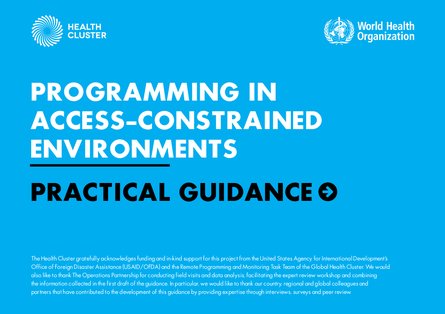
The need to protect and improve the lives and health of crisis-affected people has never been greater, with more than 130 million people in need of humanitarian assistance globally, including 65 million displaced people. In line with the Health Cluster Multi-Year Strategy for 2017–2019, the Global Health Cluster is committed to achieving better health outcomes for crisis-affected people, to putting health at the centre of humanitarian action, and to leaving no one behind.
Through collective action, grounded in humanitarian norms, and more efficient and effective coordination, the Health Cluster aims to increase access to essential health services, increase the lifesaving impact of humanitarian assistance, and achieve better health outcomes. Increasingly, crisis-affected populations are hard to reach, due to access and security constraints in complex conflict environments. The lack of unhindered access to communities with high humanitarian needs can prevent aid agencies from applying their standard operating model (“direct operation”). Consequently, alternative modes of operation must be employed.
